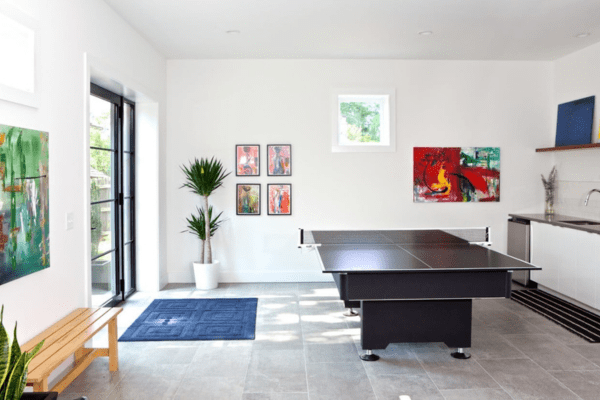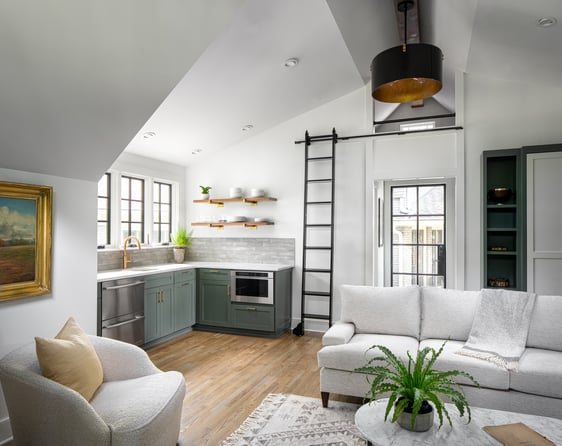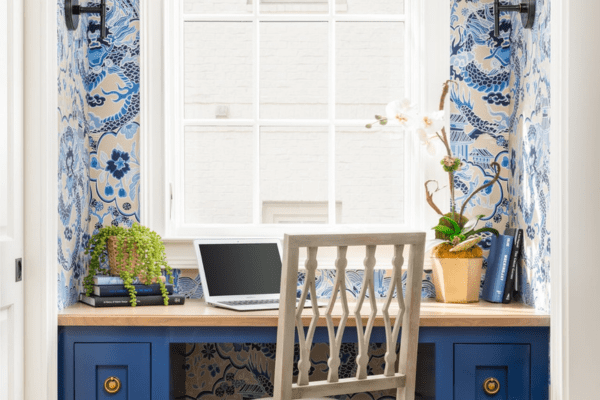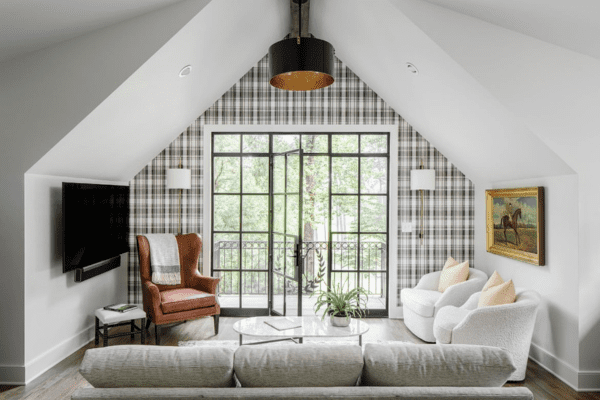Does Your Atlanta Home Need an ADU?
Aging Gracefully with ADUs in Atlanta
One of the most compelling reasons to consider an Accessory Dwelling Unit (ADU) for your Atlanta home is the opportunity it presents for aging in place. As homeowners or their family members advance in years, the main house may become less accommodating. An ADU, with its potential for single-level living, accessibility modifications, and proximity to loved ones, can be an ideal solution. Not only does it provide people with a sense of independence and privacy, but it also offers peace of mind to families knowing their older relatives are close by. Additionally, the compact nature of ADUs ensures they are manageable and easier to maintain, making them a thoughtful choice for those entering their golden years.
The Benefits of ADUs for Generating Supplemental Income
Atlanta homeowners often leverage their Accessory Dwelling Units for supplemental income. With the city's vibrant culture and steady influx of visitors, there's a ripe market for rentals.
Steady Revenue Stream: With the city's popularity among both professionals and tourists, there's a consistent demand for rental spaces. An ADU offers a unique charm compared to conventional apartment rentals, appealing to those seeking a more home-like, intimate environment. This ensures not only regular occupancy but also competitive rental rates.
Flexibility in Tenant Types: Whether you're considering renting to short-term vacationers, long-term tenants, or even students from nearby universities, an ADU offers the versatility to cater to different rental demographics. This flexibility allows homeowners to adjust their rental strategies based on market trends and personal preferences.
Preservation of Privacy: One significant advantage of ADUs is the balance they strike between proximity and privacy. While your renters benefit from a separate, self-contained living space, you maintain the privacy and sanctity of your primary residence.The Benefits of ADUs for Housing Family and Friends
Of course, it may also make sense to build an ADU for non-financial reasons, particularly to accommodate family and friends. More and more, college graduates are moving back in with their parents or relatives, retiring parents are moving in with their children, and single friends are looking for ways to split finances and enjoy one another's company while retaining their privacy.
In any of these scenarios, having an ADU on-premise is the perfect way to make long-term hosting doable for homeowners and guests alike.
The benefits we’ve highlighted so far focus on living spaces. However, you don’t have to limit your use of these additional dwelling units specifically to “dwelling.” There are myriad ways you can use an addition to your home. Here are a couple of additional ideas for adding spaces such as these for other purposes.
Add a Home Office
Creating a separate office space at home—but out of the house—can be a priceless amenity. You'll have a quiet space that's dedicated to getting work done. You'll be less likely to be interrupted. And if you build in features such as a small kitchen, bathroom, and even a bedroom, you won’t be tempted to run into the house while you’re trying to work. Depending on how far away from the main house you are, you may want to consider adding an additional router to the new space to ensure that you have adequate wi-fi.

Add a Craft or Hobby Space
Do you have, or wish to have, a craft or hobby that really needs its own space? Maybe you love painting. Perhaps you’re a potter. Or you could be a closet composer who has always dreamed of having a studio of your own. Building a separate space to pursue your hobbies can be a life-changing luxury. If your hobby is a little messy (painting and pottery are both naturally that way), you don’t have to worry about tidying up if you’re in the middle of a project. Also, you can keep the smells of paints and the dust associated with your craft out of the main house. Plus, there’s the benefit of being able to create in privacy, without being disturbed.
As with a home office, it makes sense to include a small kitchen, bathroom, and bedroom so that the space can be used for other purposes later. You'll want to consider ventilation if you use the space for painting, pottery, or a similar craft that needs a slightly higher level of airflow. If you design the space with that in mind, it shouldn't add much in the way of expense.
Identifying Ideal Locations for Your ADU in Atlanta
When considering the addition of an Accessory Dwelling Unit (ADU) to your Atlanta property, location plays a pivotal role. You may be limited by local zoning laws, your lot, or the type of dwelling you require. Here's a guide to selecting the optimal spot.
-
Backyard Spaces: The most common choice, placing your ADU in the backyard, ensures easy access while maintaining a healthy distance from the main residence. This option is perfect for homeowners who prioritize privacy without compromising the connectivity between the primary home and the ADU.
-
Above Garage Units: Utilizing the space above your garage can be an ingenious way to introduce an ADU. This remodeling location offers tenants a unique vantage point, possibly providing picturesque views of the neighborhood or garden and makes use of space you already have.
-
Basement Conversions: For properties with sizable basements, converting them into ADUs can be both cost-effective and practical. With proper insulation and design, basements can transform into cozy, sought-after living spaces.
-
Attached Units: If your primary residence has an unused wing or a substantial side space, it can be reconfigured into an ADU. Such units can share a wall with the main house, allowing for easier utility connections and integration.
Understanding Property Taxes for ADUs in Atlanta
When considering the addition of an Accessory Dwelling Unit (ADU) to your Atlanta property, it's crucial to factor in potential changes to your property taxes. Here's a quick rundown:
-
Increased Property Value: Typically, the construction of an ADU will increase the overall value of your property. With this increased valuation, you can expect a corresponding rise in property taxes. However, the exact amount of this increase can vary based on the size, quality, and utility of the ADU.
-
Assessment Frequency: Property tax assessments aren't constant; they occur at scheduled intervals. After completing your ADU, it might not immediately reflect in your taxes until the next assessment.
-
Potential Benefits: In some jurisdictions, tax incentives might be available for homeowners who build ADUs, especially if they serve a broader community purpose, such as affordable housing. It's always worth checking local tax policies and programs that encourage ADU construction.
-
Long-term Consideration: While an ADU might result in higher property taxes, it's essential to weigh this against the potential benefits, like rental income or increased property resale value. In many cases, the long-term financial advantages far outweigh the tax implications.

Checking Codes and Zoning Laws for Atlanta ADUs
Before constructing or converting an Accessory Dwelling Unit in Atlanta, it's paramount to have a clear understanding of the local codes and zoning laws. Atlanta has made strides in recent years to encourage the development of ADUs, but there are still crucial regulations homeowners must adhere to. Here's a breakdown of the essential components.
-
Zoning Classifications: Not all residential zones in Atlanta permit the construction of ADUs. It's vital to check with the city's zoning map to determine if your property falls within an area that allows ADU development. Generally, properties zoned as single-family residential (R-1 through R-5) might permit ADUs, but there can be specific conditions to meet.
-
Size and Height Restrictions: Atlanta has clear guidelines regarding the maximum size an ADU can occupy. Often, ADUs are restricted to a certain percentage of the lot size or the main dwelling's square footage. Height limitations are also enforced to ensure that the ADU remains secondary in nature to the primary residence and doesn't impede on neighbors' privacy.
-
Setback Requirements: ADUs need to maintain specific distances from property lines, known as setback requirements. This is to ensure fire safety, sufficient light and air, and to maintain the character of residential neighborhoods.
-
Parking Provisions: Depending on the size and location of your ADU, the city might require you to provide additional off-street parking. It's essential to understand these requirements to ensure that the addition of an ADU doesn't congest local streets.
-
Utility Connections: ADUs can either share utilities with the main house or have separate connections. The city may have specific guidelines or prerequisites for either scenario, especially regarding water, sewerage, and electricity.
-
Design and Aesthetics: While the city promotes ADUs, they also emphasize that these units should blend seamlessly with the neighborhood's character. There might be regulations on exterior materials, window placements, roof styles, and other design elements.
-
Owner Occupancy: Some zoning codes require the property owner to reside either in the main dwelling or the ADU. This stipulation is to ensure that neighborhoods maintain their residential character and don't become predominantly rental areas.
-
Permitting and Fees: Constructing or converting an ADU requires obtaining appropriate permits from the City of Atlanta. There are associated fees, and the permit process ensures that the ADU meets all building and safety standards.
Whether it's creating a sanctuary for a loved one, carving out a space of financial opportunity, or understanding the maze of regulations, a well-planned ADU can bring significant value to your property. At Copper Sky Design + Remodel, we're not just about building spaces; we're about crafting solutions that resonate with your vision and needs. Ready to explore the ADU potential for your Atlanta home? Reach out to Copper Sky Design + Remodel and let us guide you every step of the way.

-3.png)
-4.png?width=600&height=400&name=Untitled%20design%20(7)-4.png)
-Sep-21-2023-11-52-38-1850-AM.png?width=600&height=400&name=Untitled%20design%20(7)-Sep-21-2023-11-52-38-1850-AM.png)


